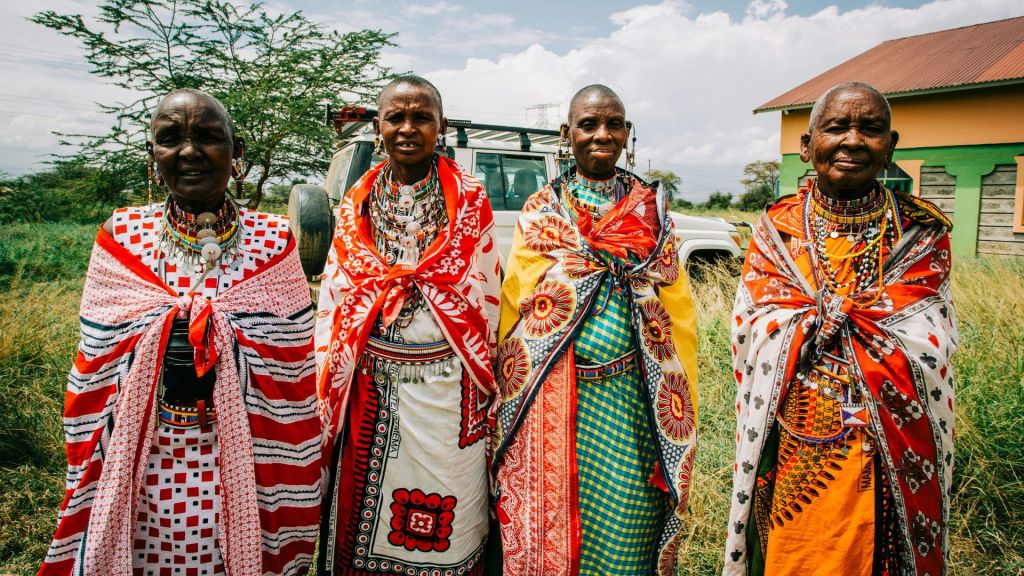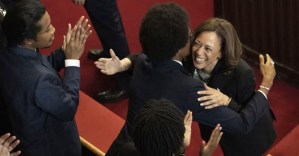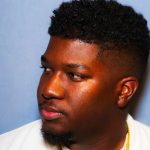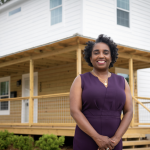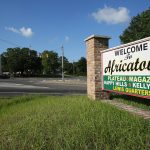By Aswad Walker
Associate editor, Houston Defender
With each passing day the assault on all things Black increases.

The Department of Defense removed the Tuskegee Airmen and Jackie Robinson from the DoD’s official webpage. The DoD no longer acknowledges Black History Month. The U.S. Army erased Civil Rights Movement hero and U.S. military veteran Medgar Evers’ marker from the Arlington National Cemetery.
Though all these anti-Black moves were eventually reversed, the fact that President Donald Trump’s administration made them in the first place is telling. And they provide even more reasons why teaching, learning and sharing Black history is more important now than ever. That includes our global history.
To that end, the Defender gathered critical pieces of Black History—African proverbs—that have provided impactful wisdom sayings for our people for eons. The goal here is to identify which of these wisdom sayings speak to the needs and issues Black people are facing in 2025.
In other words, can these elements of Black History impact the quality of Black life today?
Here’s what those interviewed shared by way of African proverbs and their contemporary relevance.
“A lion does not stop for barking dogs—it knows its strength.”

Credit: Aswad Walker.
Local activist and member of the National Black United Front (NBUF) Krista Folade Madzimoyo contends this proverb contains a powerful lesson for Black people in 2025.
“With Trump back in office, racism and oppression are louder than ever,” said Madzimoyo. “But we must not be distracted by fear and division.”
Madzimoyo views this wisdom saying as a call to action to silence much of the politically divisive and anti-Black noise coming from the nation’s capital.
“Now is the time for unity and action. Instead of reacting to every attack, we must build real power—economic independence, community defense and cultural and political strength. The barking will continue, but lions do not answer to noise. Lions move forward and take what is theirs,” added Madzimoyo.
“No matter how beautifully the chicken dances, it never pleases the hawk.”

Credit: Unsplash/ James Wainscoat and Elisa Stone
Dr. Earle Fisher, pastor of Abyssinian Baptist Church (Memphis), is nationally known for his progressive political activism and use of African proverbs, including the one listed above.
He sees a direct correlation between the animals of the proverb and Black people today.
“So many Black folks feel they need to pander to the oppressor in order to progress,” Fisher told the Defender. “But they fail to realize nothing we do will suffice for them to see us as worthy of full humanity.”
“The child who is not embraced by the village will burn it down to feel its warmth”

Noted West African elder, griot and author Malidoma Somé shared these words about the importance of community: “Without community, you cannot be yourself. The community is where we draw the strength needed to effect changes inside of us. What one acknowledges in the formation of the community is the possibility of doing together what is impossible to do alone.”
Somé mentions this point in several of his best-selling books, including “The Healing Wisdom of Africa” and “Ritual.” He makes the connection between much of the brokenness found in Black life, and especially with Black youth, to the absence of community (the village).
Though Somé passed away in 2021, his interpretation of the village burning serves as a reminder to Black people about the work required today and into the future.
“A roaring lion kills no game.”

Christopher Whaley, DJ and host of “The Soul Brother Show,” contends this African proverb best describes how we should move through these challenging socio-political times. Whaley’s explanation of this proverb’s current relevance also serves as a call-out to not be impressed or intimidated by loud, over-the-top political directives and executive orders.
“Success isn’t found in noise or spectacle, rather it’s built in the quiet, through steady, intentional effort,” shared Whaley.
“He who knows does not die like he who does not know.” (Yoruba Proverb)
University of Texas graduate Oshunfemi “Zinetta” Williams, an activist legend during the 1980s while a student, is an educator who regularly employs African proverbs in her lesson plans. Recently, she shared this one with her seventh-graders: “He who knows does not die like he who does not know.”

Credit: Courtesy Oshunfemi Williams.
Williams explained the meaning she extracts from these words. “When one has knowledge about a particular situation or circumstance, one can avoid destructive situations,” she said. “It’s like you know yo’ mama told you to not hang out with Bubba and ‘em, you listened to her. And when they got caught vandalizing the school you were not with them and therefore didn’t have to go to Alternative School like they did and miss the end-of-year dance. All because you listened to yo’ mama.”
Williams explained how this applies to Black people as a whole currently.
“Since we see the attacks on Black people by politicians and others, we know they have a lack of respect for us. When we know this, we can move in the world accordingly by supporting our own businesses, teaching our history to our children and more,” Williams said. “Those of us who don’t know this will probably move in ways that set them up to be disrespected even more. In other words, listen to yo’ mama.”
“A chattering bird builds no nest.” (Cameroon and Uganda)
Marcus Brown, a consultant in the energy field, takes the ancient African wisdom words from Cameroon/Uganda to mean something Black people in 2025 should take to heart.
“You have to focus your efforts on the task to get it done,” said Brown. “Basically, don’t talk about it, be about it.”
“Blessed are those who struggle.” (The Last Poets)
Kamau Jackson, a wise elder in his own right, shared an African wisdom quote from the group of revolutionary word-sayers who came to prominence in the 1960s – The Last Poets.
Many view the group of conscious, liberation-focused brothers as the precursors to the hip-hop artists who hit the scene in the late 1970s and early 1980s.
When asked how the African proverb he chose speaks to Black people’s reality in 2025, he stated an expanded version of this particular saying, suggesting its contemporary meaning is self-explanatory:
“Blessed are those who struggle. Oppression is worse than the grave. Better to die for a noble cause, than to live and die a slave.”
This article was originally published by the Houston Defender in two parts. See the original stories at the following link (s): https://defendernetwork.com/news/black-history-month-2025/ https://defendernetwork.com/community/african-proverbs-black-history/
The post How ancient African proverbs can empower Black lives today appeared first on AFRO American Newspapers.

